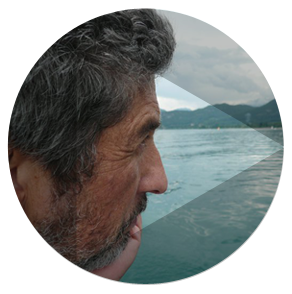
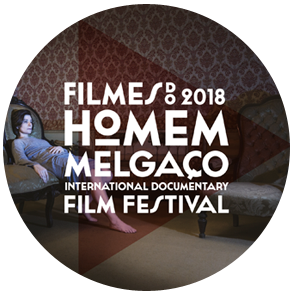
Films
WELCOME TO SODOM
Running for the Jean-Loup Passek Award for
BEST INTERNATIONAL FEATURE LENGTH FILM
BEST INTERNATIONAL FEATURE LENGTH FILM
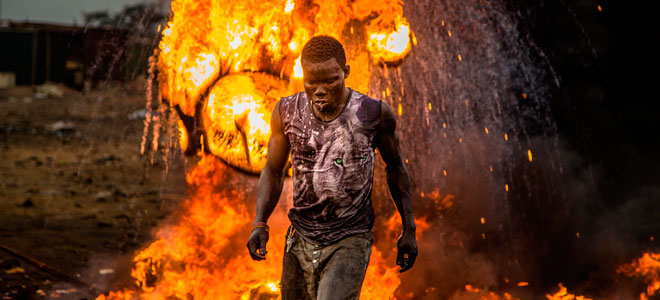
Christian Krönes, Florian Weigensamer | Austria, 2018, 92'
A dark and sensuous film from a landfill in Ghana, where electronic waste from the west is being recycled. An unforgettable experience, told by the workers themselves.
- Photography: Christian Kermer
- Editing: Christian Kermer
- Production: Blackbox Film & Medienproduktion gmbh, Christian Krönes, Roland Schrotthofer

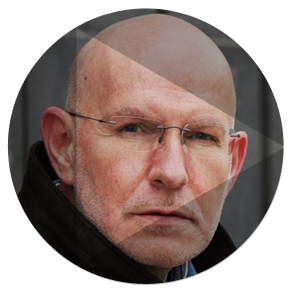
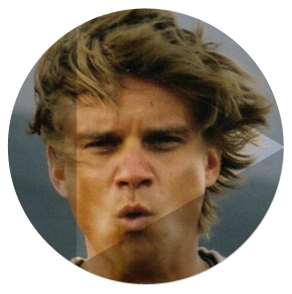
LUZ OBSCURA OBSCURE LIGHT
Running for the Jean-Loup Passek Award for
BEST INTERNATIONAL FEATURE LENGTH FILM
BEST PORTUGUESE DOCUMENTARY
BEST INTERNATIONAL FEATURE LENGTH FILM
BEST PORTUGUESE DOCUMENTARY
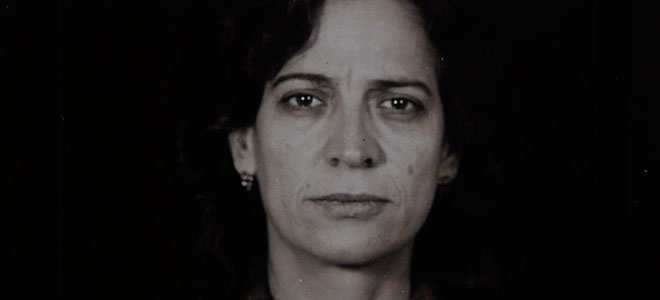
SUSANA DE SOUSA DIAS | Portugal, 2017, 76'
How many members of a family get dragged into the web of the political police on the arrest of a single political prisoner? How do you give form to someone who disappeared without having had a historical existence? Taking as its starting point the photographs taken by the Portuguese Political Police (1926-1974), Obscure Light seeks to reveal how an authoritarian system operates within the family intimacy, simultaneously revealing areas of repression which mould the present.
- Photography: João Ribeiro
- Sound: Armanda Carvalho
- Editing: Susana de Sousa Dias
- Production: ANSGAR SCHAERFER | KINTOP

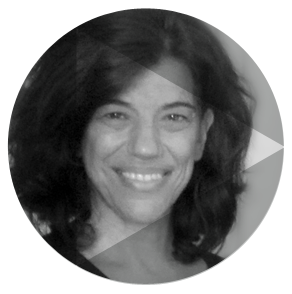
THIS IS CONGO
Running for the Jean-Loup Passek Award for
BEST INTERNATIONAL FEATURE LENGTH FILM
BEST INTERNATIONAL FEATURE LENGTH FILM
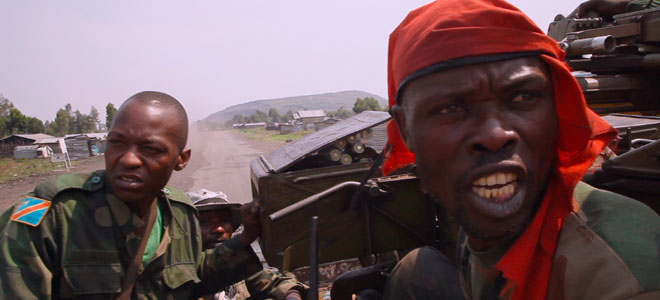
Daniel Mccabe | Congo, 2017, 93'
This is Congo is a highly-immersive, unfiltered look into one of the longest conflicts in the world. The Democratic Republic of the Congo has seen more than five million conflict-related deaths, multiple regime changes and the wholesale impoverishment of its people in the past two decades. This is Congo immerses the viewer onto the frontlines of battle with key players including a whistleblower and military commanders to provide a truly unfiltered and unique look into the conflict plaguing Congo.
- Photography: Daniel Mccabe
- Editing: Alyse Ardell Spiegel
- Production: Geoff Mclean

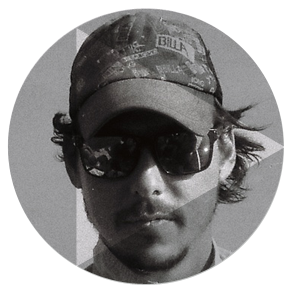
THE DEMINER
Running for the Jean-Loup Passek Award for
BEST INTERNATIONAL FEATURE LENGTH FILM
BEST INTERNATIONAL FEATURE LENGTH FILM
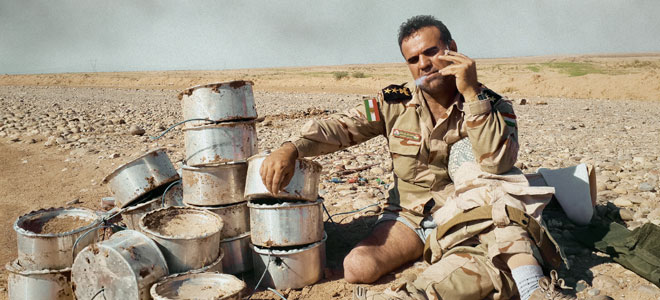
Hogir Hirori | Sweden, 2017, 83'
In 2003 Fakhir, a father of eight, goes on a military mission to Mosul (Iraq) to fight against the terror after the fall of Saddam Hussein. When he sees how thousands of innocent people are stricken by exploding mines he decides to become a deminer. With just a simple knife and a pair of clippers he manages to disarm thousands of mines, a task that could cost him his life at any second. But that does not make him stop. Fakhir’s ambition is greater than that, and he knows that innocent people need his help.
- Photography: Shinwar Kamal, Firas Bakrmani, Erik Vallsten
- Editing: Hogir Hirori
- Production: Antonio Russo Merenda, Hogir Hirori

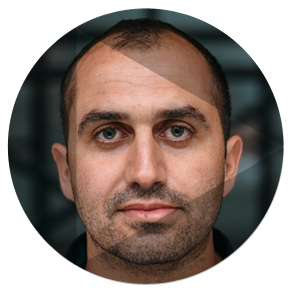
THE TIME IN LUPARIA THE TIME IN LUPARIA
Running for the Jean-Loup Passek Award for
BEST INTERNATIONAL FEATURE LENGTH FILM
BEST INTERNATIONAL FEATURE LENGTH FILM
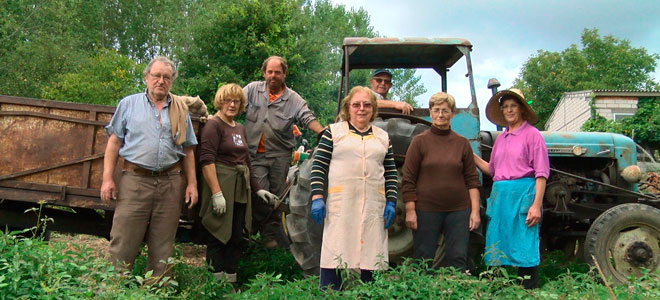
Plácido Romero | Spain, 2018, 67'
A different, lyrical vision, over time, in a territory of inner Galicia with a strong sense of identity marked by a magical past, a disconcerting present and hope for a better future.
- Photography: Plácido Romero
- Sound: Sebastián Mato
- Editing: Mariana Romero, Plácido Romero
- Production: Arraianos Producións

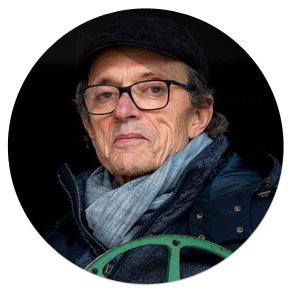
O TERMOMETRO DE GALILEU GALILEO’S THERMOMETER
Running for the Jean-Loup Passek Award for
BEST INTERNATIONAL FEATURE LENGTH FILM
BEST PORTUGUESE DOCUMENTARY
BEST INTERNATIONAL FEATURE LENGTH FILM
BEST PORTUGUESE DOCUMENTARY
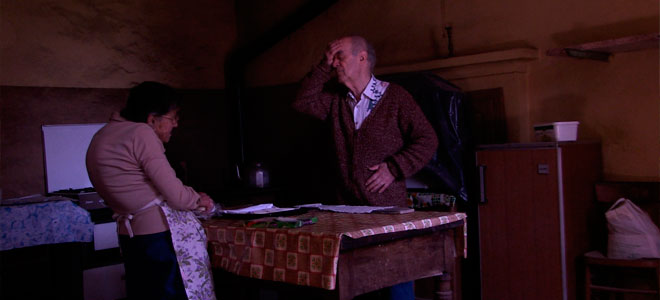
Teresa Villaverde | Portugal, 2018, 105'
Shot in Italian Piemonte with the family of the Italian filmmaker Tonino de Ternardi. A film about transmission between generations, about their love, their respect for life and art, and each other.
- Photography: Teresa Villaverde
- Sound: Teresa Villaverde
- Editing: Teresa Villaverde
- Production: Teresa Villaverde / ALCE FILMES

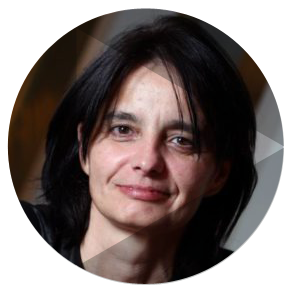
BOSTOFRIO, OÙ LE CIEL REJOINT LA TERRE
Running for the Jean-Loup Passek Award for
BEST INTERNATIONAL FEATURE LENGTH FILM
BEST PORTUGUESE DOCUMENTARY
BEST INTERNATIONAL FEATURE LENGTH FILM
BEST PORTUGUESE DOCUMENTARY
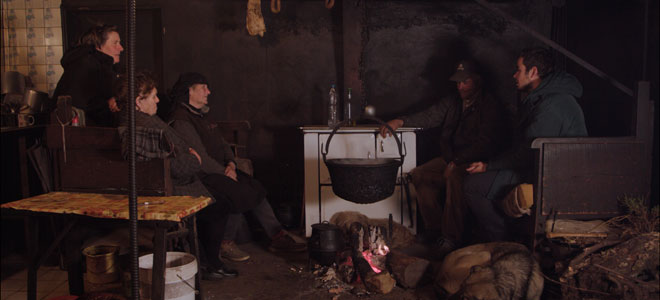
Paulo Carneiro | Portugal, 2018, 70'
In a remote village in Portugal, a young filmmaker breaks the law of silence in order to unearth the story of his grandparents.
- Photography: Pedro Neves
- Sound: Ricardo Leal
- Editing: André Valentim Almeida, Francisco Moreira, Paulo Carneiro
- Production: Paulo Carneiro

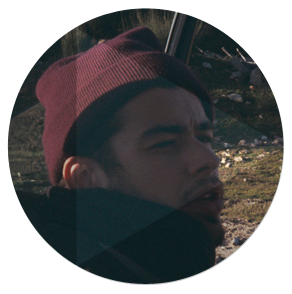
A CASA THE HOUSE
Running for the Jean-Loup Passek Award for
BEST INTERNATIONAL FEATURE LENGTH FILM
BEST PORTUGUESE DOCUMENTARY
BEST INTERNATIONAL FEATURE LENGTH FILM
BEST PORTUGUESE DOCUMENTARY
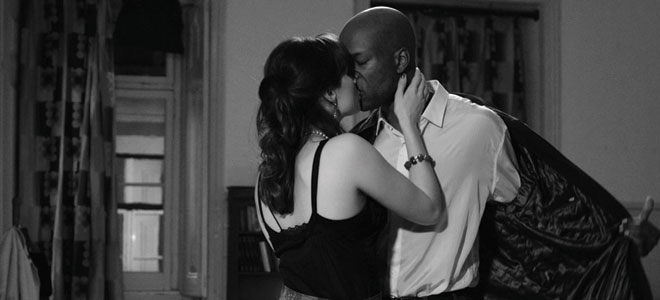
Rui Simões | Portugal, 2017, 78'
Born in Lisbon during the fascist regime in order to control the students that came from the Portuguese overseas colonies, the Casa Estudantes do Império, with delegations in Coimbra and Porto, was fundamental to the independence movements in the colonies. Through that meeting point passed future anti-colonial and national movement leaders such as Agostinho Neto and Amílcar Cabral. The House recovers memories and testimonies by some of its remaining survivors while also adapting to screen excerpts of Pepetela's novel "A Geração da Utopia".
- Photography: João Serralha
- Sound: Paulo Cerveira
- Editing: Francisco Costa
- Production: Jacinta Barros, Rui Simões

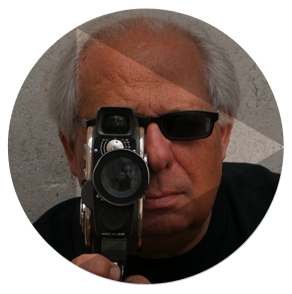
HERANÇA HERITAGE
Running for the Jean-Loup Passek Award for
BEST INTERNATIONAL FEATURE LENGTH FILM
BEST PORTUGUESE DOCUMENTARY
BEST INTERNATIONAL FEATURE LENGTH FILM
BEST PORTUGUESE DOCUMENTARY
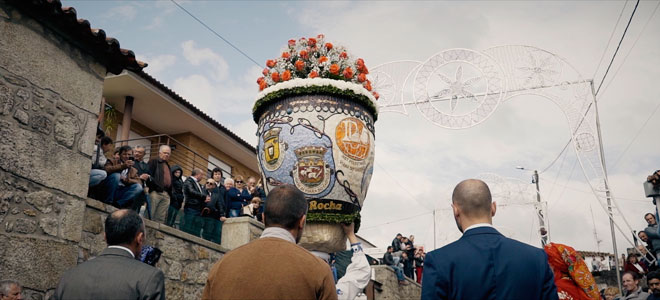
Flávio Cruz | Portugal, 2017, 50'
The cultural heritage of a population is, in its authenticity, a great richness in a society that, in its identity, congregates the ancient stories and the willingness to perpetuate them. The documentary Heritage portrays, in a faithful and genuine manner, the socialization processes and the teaching of cultural and social values, in some of the festivities of Viana do Castelo, in Portugal, with the aim of protecting its cultural patrimony.
- Sound: Marco Lima
- Editing: Flávio Cruz
- Production: Ponto de Vista - Produções Audiovisuais / Câmara Municipal de Viana do Castelo

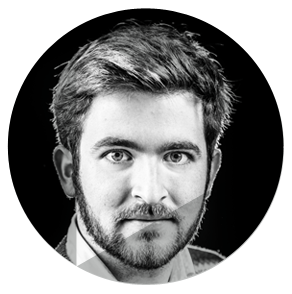
NI JUGE NI SOUMISE SO HELP ME GOD
Running for the Jean-Loup Passek Award for
BEST INTERNATIONAL FEATURE LENGTH FILM
BEST INTERNATIONAL FEATURE LENGTH FILM
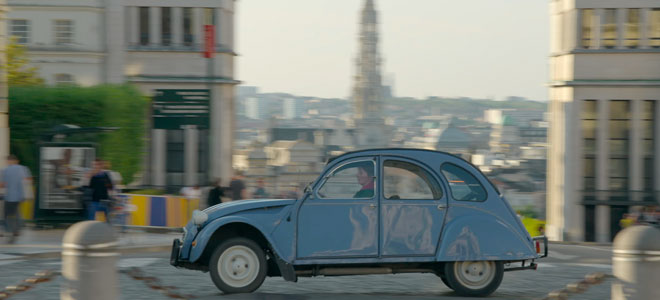
Jean Libon, Yves Hinant | France, 2017, 99'
The extraordinary, offbeat judge Anne Gruwez takes us behind the scenes of real life criminal investigations. For three years the satirical team behind the cult TV series "strip-tease" captured what no one had dared film before. Unapologetic and politically incorrect. You won't believe your eyes. It's not cinema: it's worse!
- Photography: Didier Hill-Derive
- Sound: Yves Goossens-Barra
- Editing: Françoise Tourmen
- Production: Bertrand Faivre (Le Bureau)

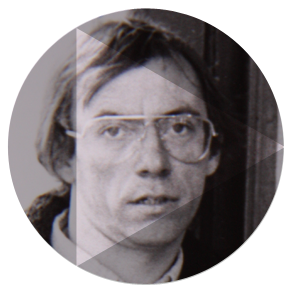
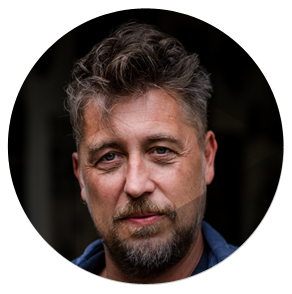
OS CANTADORES DE PARIS THE ALENTEJO SINGERS OF PARIS
Running for the Jean-Loup Passek Award for
BEST INTERNATIONAL FEATURE LENGTH FILM
BEST PORTUGUESE DOCUMENTARY
BEST INTERNATIONAL FEATURE LENGTH FILM
BEST PORTUGUESE DOCUMENTARY
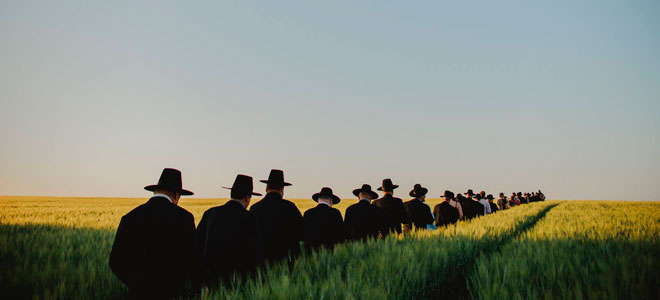
Tiago Pereira | Portugal, 2018, 80'
The Música Portuguesa a Gostar dela Própria presents a film by Tiago Pereira. In Paris, a Group of Cante Alentejano polyphonic singing was created, composed of people of diferente nationalities. The Alentejo cante has an amazing thing, its confessional aspect. Manly, well built men sing about flowers and little birds, and the women, when not imitating the men's mottos, sing feminine secrets and lamment about being married. People use cante as an outlet.
- Photography: Manuel Abelho, Tiago Pereira
- Sound: Ana Paula Silvestre
- Editing: Tiago Pereira
- Production: A Música Portuguesa A Gostar Dela Própria, Sofia Matias, Compagnie Des Rêves Lucides

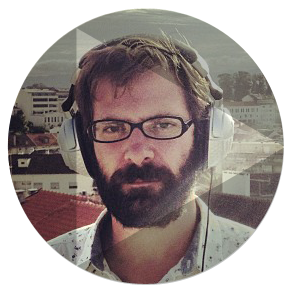
IMPREZA THE CELEBRATION
Running for the Jean-Loup Passek Award for
BEST INTERNATIONAL FEATURE LENGTH FILM
BEST INTERNATIONAL FEATURE LENGTH FILM
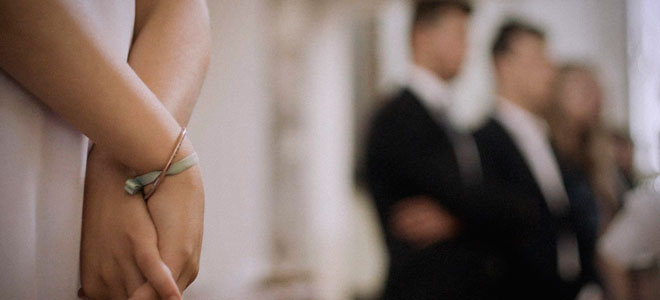
Alexandra Wesolowski | Germany, 2017, 75'
The whole family is preparing for Danuta's and Maciej's golden wedding. In honour of this occasion Alexandra, their german niece, visits Warsaw. Right away politics engross their conversations and it soon becomes clear that all polish relatives support the measures taken by the right-conservative pis government. All of a sudden Alexandra is left alone with her liberal views and regarded as a victim of western propaganda.
- Photography: Denis D. Lüthi
- Sound: Emilia Sniegoska
- Editing: Martha Ewa Wojakowska, Alexandra Wesolowski
- Production: Julian Anselmino (DREIFILM)


HANAA
Running for the Jean-Loup Passek Award for
BEST INTERNATIONAL FEATURE LENGTH FILM
BEST INTERNATIONAL FEATURE LENGTH FILM
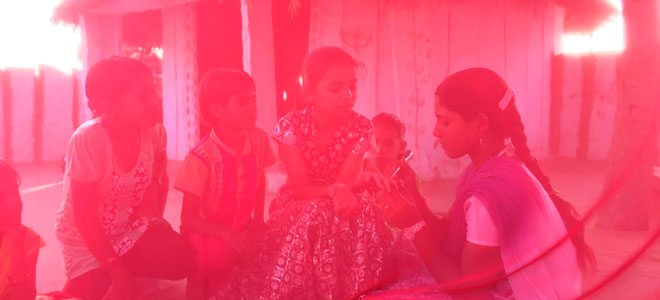
Giuseppe Carrieri | Italy, 2017, 57'
In India a young girl has been forced to marry because her horoscope said that that was the only way for her to survive. In Nigeria a young girl has been raped by Boko Haram’s soldiers and one night she has tried to escape her kidnappers. In Peru a young girl has become a young mother. In Syria, because of the war, a girl has been sold to the highest bidder. Their four destinies will inevitably interweave, starting from the name that they all share: Hanaa.
- Photography: Nicola Baraglia, GIORGIA Benazzo, Marco Caddeo, Giancarlo Migliore, Matteo Urbinati
- Sound: Andrea Pilloni
- Editing: Carlotta Marrucci
- Production: Natia Docufilm, Rai Cinema

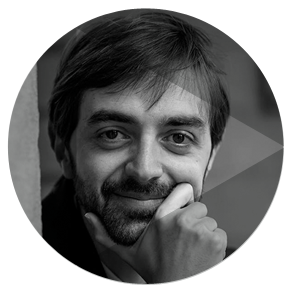
THE LAST TAPE
Running for the Jean-Loup Passek Award for
BEST INTERNATIONAL SHORT OR MEDIUM LENGTH FILM
BEST INTERNATIONAL SHORT OR MEDIUM LENGTH FILM
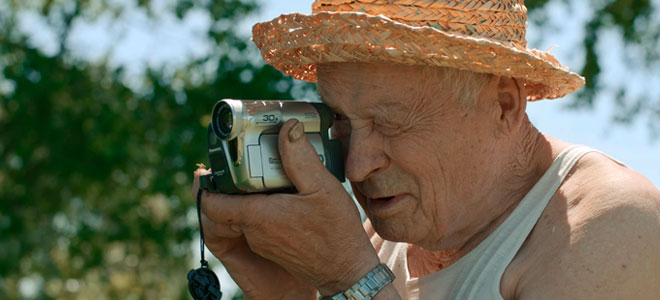
Cyprien Clement-Delmas, Igor Kosenko | Germany, 2017, 12'21''
As Artiom prepares to fight for the Ukrainian Army, Anatoly, his 88-year-old grandfather and war veteran, records their diminishing time together and questions his choice.
- Photography: Ivan Castineiras
- Sound: Simon Bastian
- Editing: Martin Reimers
- Production: Fabian Driehorst

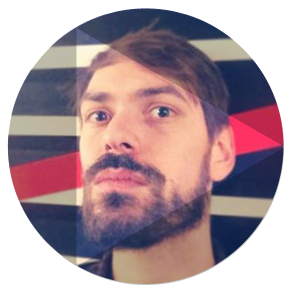
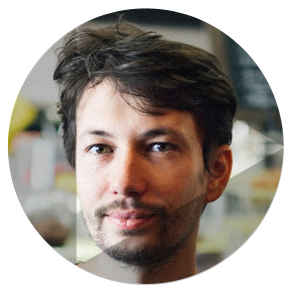
BOCA DE FOGO FIRE MOUTH
Running for the Jean-Loup Passek Award for
BEST INTERNATIONAL SHORT OR MEDIUM LENGTH FILM
BEST INTERNATIONAL SHORT OR MEDIUM LENGTH FILM
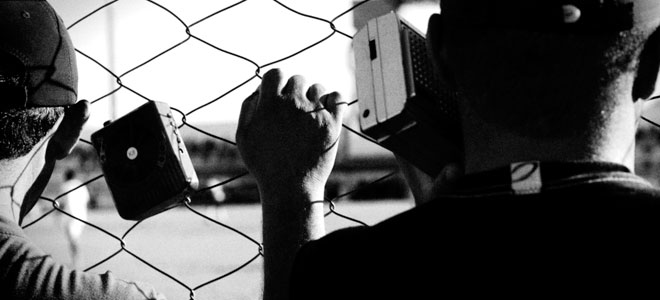
Luciano Pérez Fernández | Brazil, 2017, 9'
City of Salgueiro, in the heartland of Pernambuco, Brazil. In the stands, the heat punishes the fans. On the radio, Fire Mouth ignites the broadcasting.There`s no sports commentator like Fire Mouth.
- Photography: Anderson Capuano
- Sound: Nicolau Domingues
- Editing: Rodrigo Daniel
- Production: Erika Azevedo, Luciano Pérez Fernández

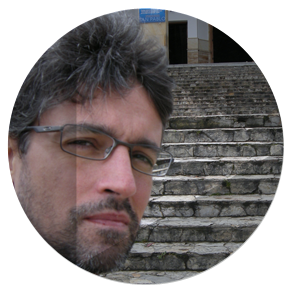
MANKURT
Running for the Jean-Loup Passek Award for
BEST INTERNATIONAL SHORT OR MEDIUM LENGTH FILM
BEST INTERNATIONAL SHORT OR MEDIUM LENGTH FILM
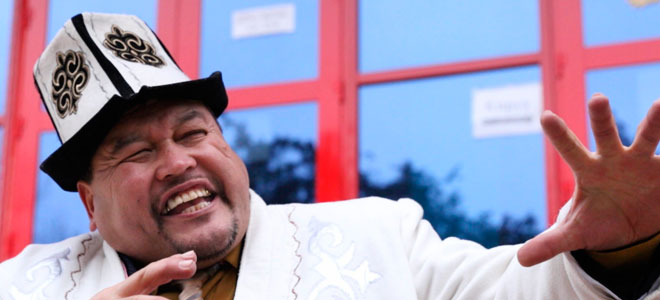
Gulzat Matisakova | Kyrgyzstan, 2018, 13'12''
A film student from Kyrgyzstan loses her passport in the multinational city of Brussels. The only person who can help her is a nationalist consul (and only worker at the Kyrgyz Embassy), who is more interested to teach her about what makes "a real Kyrgyz" than help her restore her identity back.
- Photography:
- Sound:
- Editing:
- Production:


ARMINDO E A CÂMARA ESCURA ARMINDO AND THE DARK CHAMBER
Running for the Jean-Loup Passek Award for
BEST INTERNATIONAL SHORT OR MEDIUM LENGTH FILM
BEST PORTUGUESE DOCUMENTARY
BEST INTERNATIONAL SHORT OR MEDIUM LENGTH FILM
BEST PORTUGUESE DOCUMENTARY
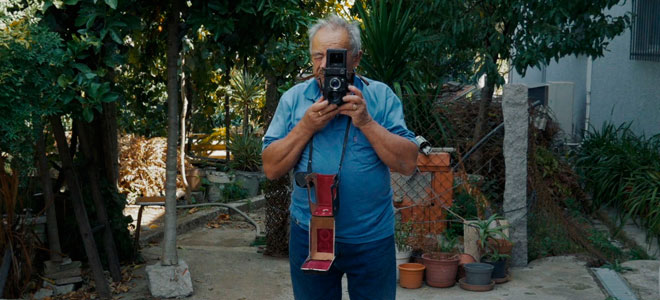
Tânia Dinis | Portugal, 2017, 20'
Armindo Carvalho is my grandfather from Vila Nova de Famalicão. He has devoted his entire life to photography and, in 1969, he obtained his professional certification. He recorded his and other people’s families.
- Photography: Tânia Dinis
- Sound: Tânia Dinis
- Editing: Jorge Quintela, Tânia Dinis
- Production: Tânia Dinis

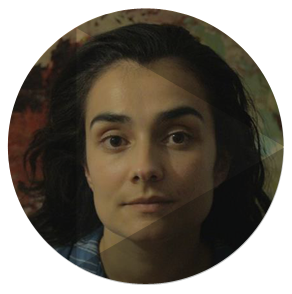
TIJUANA TALES
Running for the Jean-Loup Passek Award for
BEST INTERNATIONAL SHORT OR MEDIUM LENGTH FILM
BEST INTERNATIONAL SHORT OR MEDIUM LENGTH FILM
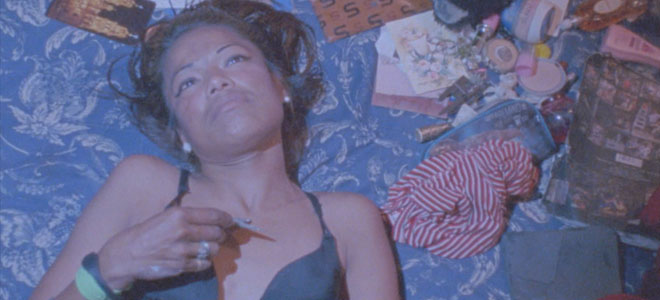
Jean-Charles Hue | France, 2017, 11'
A man returns to Tijuana in the hope of finding a woman who has been lost in the night and drugs. She seems to have become a "white lady", a ghostly creature between heaven and earth.
- Photography: Jean-Charles Hue
- Sound: Thomas Becka
- Editing: Isabelle Proust
- Production: Les Films D’avalon (France)

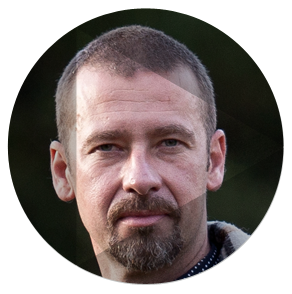
90 SECONDS IN NORTH KOREA
Running for the Jean-Loup Passek Award for
BEST INTERNATIONAL SHORT OR MEDIUM LENGTH FILM
BEST INTERNATIONAL SHORT OR MEDIUM LENGTH FILM
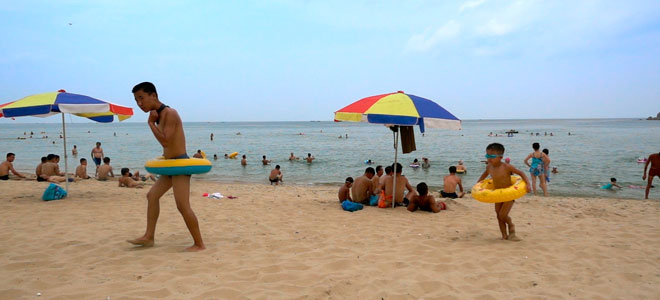
Ranko Paukovic | Netherlands, 2017, 15'
A pair of lovers riding a bicycle through the forest, children crossing the street, women playing with inflatable toys in the shallows, a father carrying his young child in the park. This Is the other side of life in North Korea, a world away from the army parades, speeches from The leader, oppression and fear. This is a poetic, observational documentary.
- Photography: Ranko Paukovic
- Sound: Ranko Paukovic
- Editing: Ranko Paukovic
- Producer: Ranko Paukovic


THE SEASON OF WARM BREEZES
Running for the Jean-Loup Passek Award for
BEST INTERNATIONAL SHORT OR MEDIUM LENGTH FILM
BEST INTERNATIONAL SHORT OR MEDIUM LENGTH FILM
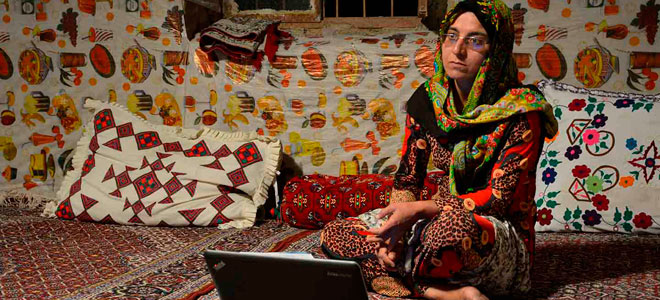
Hosseini Rigi | Iran, 2017, 43'
The Baluchi’s teacher tries to fight illiteracy in her village.
- Photography: Sadegh Souri
- Sound: Hadi Saed Mohkam, Amin Sharifi
- Editing: Hamid Fanaei
- Production: Documentary and Experimental Film Center

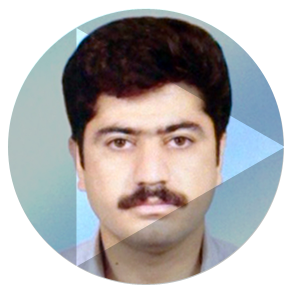
ATÉ A PRÓ/CIMA! A friendship in tow/toe
Running for the Jean-Loup Passek Award for
BEST INTERNATIONAL SHORT OR MEDIUM LENGTH FILM
BEST INTERNATIONAL SHORT OR MEDIUM LENGTH FILM
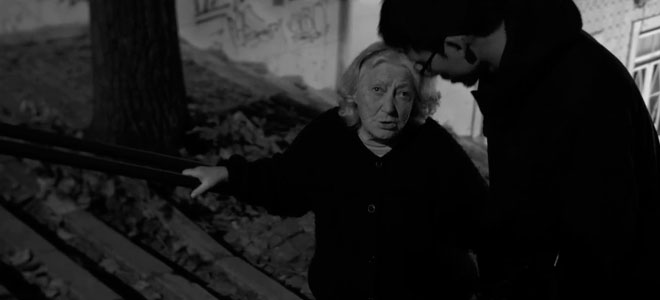
Atsushi Kuwayama | Portugal, 2017, 10'08''
This film is about a friendship growing out of walking together (in toe), while neither understanding nor leading each other well (in tow). It sets in one of the long stairs in the hilly town of Lisbon, where Dona Maria, a Portuguese lady, frequently walks up the stairs with a tall guy from somewhere in Asia.
- Photography: Anna Schlenker
- Sound: Benjamin Hameury
- Editing: Atsushi Kuwayama
- Production: Atsushi Kuwayama

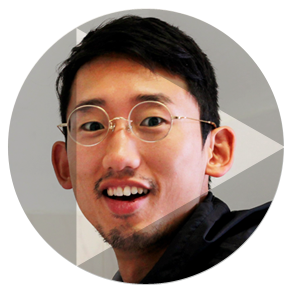
MIĘDZY NAMI BETWEEN US
Running for the Jean-Loup Passek Award for
BEST INTERNATIONAL SHORT OR MEDIUM LENGTH FILM
BEST INTERNATIONAL SHORT OR MEDIUM LENGTH FILM
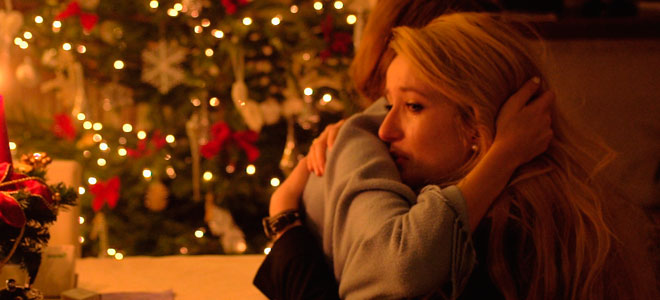
Maciej Miller | Poland, 2017, 30'
A young couple in their 20s is expecting a child but don’t know if they will cope. Faced with unexpected pressures and emotions they decide to separate and give the child up for adoption. They do not make this decision easily, with only two months remaining until the baby is due. The situation they find themselves in leads to conversations and experiences that will have a lasting impact upon the rest of their lives.
- Photography: Maciej Miller, Martyna Krasińska
- Sound: Maciej Miller
- Editing Justyna Król
- Production: Leszek Kopeć/ Jerzy Rados / Gdyńska Szkoła Filmowa

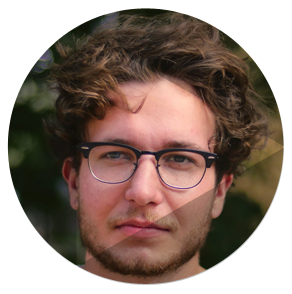
LOOKING AT OTHERS
Running for the Jean-Loup Passek Award for
BEST INTERNATIONAL SHORT OR MEDIUM LENGTH FILM
BEST INTERNATIONAL SHORT OR MEDIUM LENGTH FILM
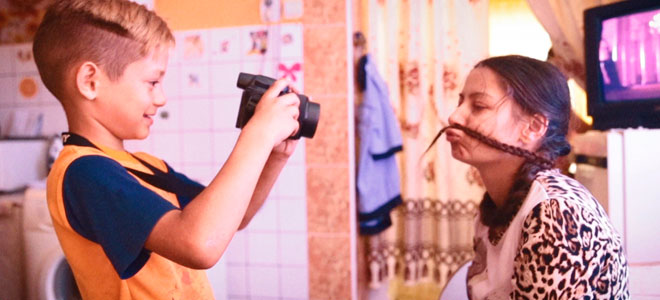
Dennis Stormer | Germany, 2018, 30'
The gaze as the very definition of othering – and tourists as the very definition of orientalization. But tourists that travel to Roma villages and Roma that market gypsy romanticism? What do both sides hope to get out of it? Can a more profound encounter even take place at all under these circumstances, with this clear assignment of roles?
- Photography: Anda Puşcaş & Dennis Stormer
- Sound: Moritz Vetter
- Editing: Dennis Stormer
- Production: Dennis Stormer & Anda Puşcaş

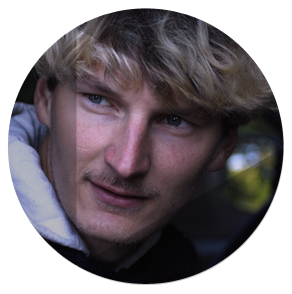
PALMIRA
Running for the Jean-Loup Passek Award for
BEST INTERNATIONAL SHORT OR MEDIUM LENGTH FILM
BEST INTERNATIONAL SHORT OR MEDIUM LENGTH FILM

Diana Gonçalves | Spain, 2017, 30'
Life passes by slowly, repetitively. A tired but resistant body. On the other side of the camera, an attempt to find that fleeting moment that reveals to us something more from life. From observation to construction with the character itself. Palmira is the portrait of several encounters as well as the testimony of the process and evolution of that portrait.
- Photography: Diana Gonçalves
- Sound: Miguel Barbosa
- Editing: Álvaro Gago
- Production: Álvaro Gago, Diana Gonçalves

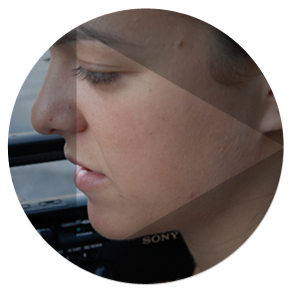
THE GOOD FIGHT A vida é uma Luta
Running for the Jean-Loup Passek Award for
BEST INTERNATIONAL SHORT OR MEDIUM LENGTH FILM
BEST INTERNATIONAL SHORT OR MEDIUM LENGTH FILM
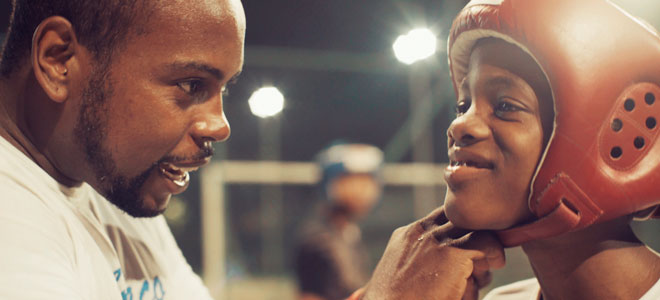
Ben Holman | Brazil / UK, 2017, 16'
Alan Duarte has lost nine close family members to gun violence in his favela community in Rio de Janeiro. Now, through his boxing project, he’s fighting to build a better future for his son and his community.
- Photography: Neirin Jones
- Sound: James Lyme at Scramble Soho
- Editing: Ben Holman
- Production: Ben Holman

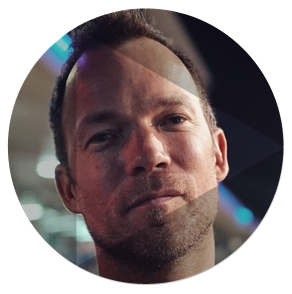
EXPOSIÇÃO Exhibit
Running for the Jean-Loup Passek Award for
BEST INTERNATIONAL SHORT OR MEDIUM LENGTH FILM
BEST PORTUGUESE DOCUMENTARY
BEST INTERNATIONAL SHORT OR MEDIUM LENGTH FILM
BEST PORTUGUESE DOCUMENTARY
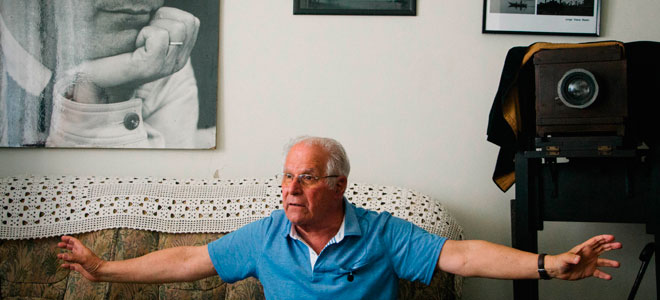
Luís Azevedo | Portugal, 2018, 15'
Image education - this is Jorge Viana Basto’s focus. For decades, he trained how to look, he taught techniques and helped young enthusiasts into becoming top-line photographers. And he still does that today.
- Photography: Tiago Carvalho, Vasco Coimbra
- Sound: Emanuel Oliveira, Henrique Garcia
- Editing: Luís Azevedo, Maria Ana Marques, Emanuel Oliveira
- Production: Alexandre Marinho / Kino Gang Filmes

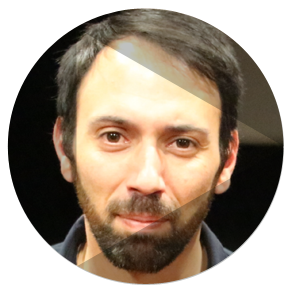
NORLEY Y NORLEN Norley and Norlen
Running for the Jean-Loup Passek Award for
BEST INTERNATIONAL SHORT OR MEDIUM LENGTH FILM
BEST PORTUGUESE DOCUMENTARY
BEST INTERNATIONAL SHORT OR MEDIUM LENGTH FILM
BEST PORTUGUESE DOCUMENTARY
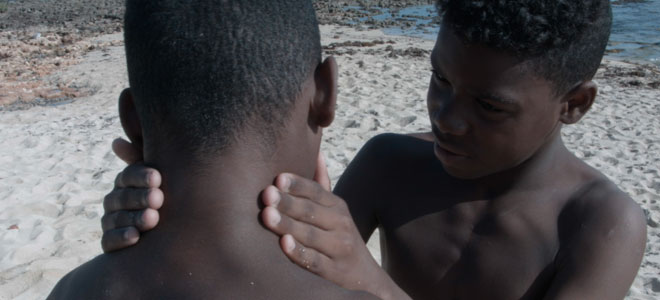
Flávio Ferreira | Portugal / Cuba / Spain, 2017, 8'
The silent language of two brothers, the intimacy of physicality. Difference through equality. Norley and Norlen are twins, sometimes they fight... Sometimes they don't.
- Photography: Flávio Ferreira
- Sound: Flávio Ferreira
- Editing: Flávio Ferreira
- Production: Flávio Ferreira, Blackfactory Cinema

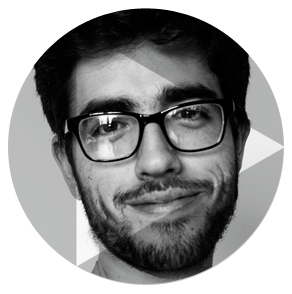
CHRONIQUE D’UN ÉTÉ
Special Session
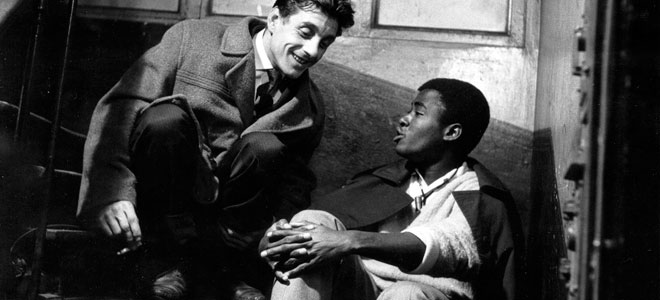
Jean Rouch | France, 1961, 85’
Co-realized with the sociologist Edgar Morin, "Chronique d'un Été" is an emblematic work of what for some time was called the "true cinema", the documentary in direct sound, without commentary and without mediations. This cinema was made possible by the appearance of lighter and silent cameras. Captured in an empty Paris during the month of August, the protagonists are French students (one of them is Régis Debray) and Africans, an old deportee to the concentration camps (Marceline Loridan), workers. A collective portrait through individual portraits, whose starting point is the question: "Are you happy?"
- Production: Anatole Dauman
- Narration: Jean Rouch
- Cinematography: Michel Brault, Raoul Coutard, Jean-Jacques Tarbès, Roger Morillière
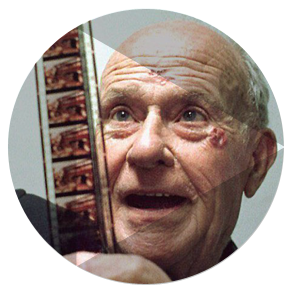
UN ÉTÉ + 50
Special Session
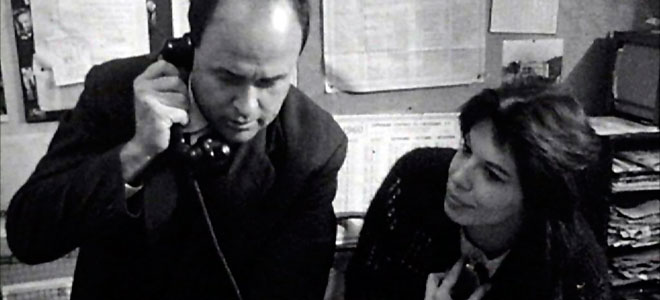
Florence Dauman | France, 2011, 71’
In 2008, an inventory of the materials, images and sounds that were not used in the definitive version of Chronique d’un été was made and the items digitized. This documentary consists of images unused until now, enriched by exciting interviews with people involved in the original film: Edgar Morin, Régis Debray, Jean-Pierre Sergent, Marceline Loridan-Ivens, and Nadine Ballot. Recorded in 2010, fifty years after Chronique d’un été was shot, this interviews invites us to a new reading of a work that contributed to changing the history of French cinema.
- Editor: Claudine Kaufman
- Sound: Olivier Strauss
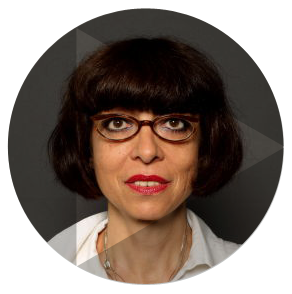
ERA O HOTEL CAMBRIDGE
Special Session
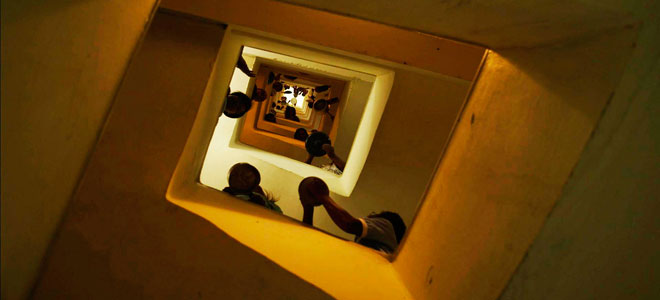
Eliane Caffé | Brazil, 2015, 99’
The story of refugees, recently arrived in Brazil who, together with a group of low-income workers, occupy an old abandoned building in downtown São Paulo. In search of a place to stay, refugees, only recently arrived from the Congo, Palestine and Syria, join forces with homeless low-income worker’s families and occupy a building in downtown São Paulo. Together they transform what used to be the Cambridge Hotel into a stage for their struggles and tragicomic events. Despite mutual prejudices, their leaders work together and implement unusual strategies in which to surmount the problems brought about by collective cohabitation.
- Director of Photography / Camera: Bruno Risas
- Editing: Márcio Hashimoto
- Production: Aurora Filmes

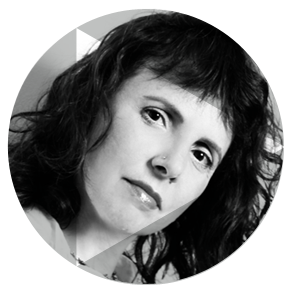
CONTES PERSANS, JEAN ROUCH EN IRAN Persian Tales, Jean Rouch in Iran
Special Session
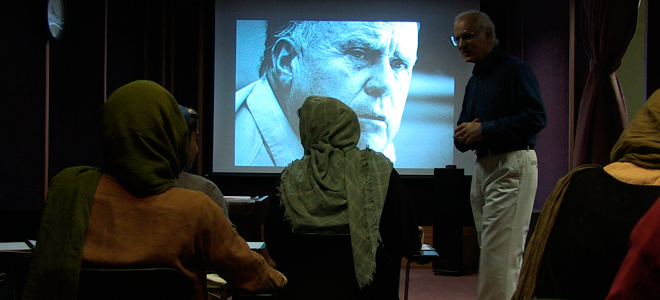
Mina Rad | France / Iran, 2018, 57’
Persian Tales, Jean Rouch in Iran is about the discovery of the deep relation of Jean Rouch with Iranian filmmakers. Jean Rouch, a French filmmaker and ethnologist, traveled three times to Iran in the 1970s . He gave several workshop and made a film in Isfahan. The iranian cinema today still have been directly and indirectly influenced not only by Jean Rouch’s method, but also through his vision and his sociological work. Persian Talesshow how the young generation of iranian filmmakers, like Jean Rouch think about how camera can change reality!
- Director: Mina Rad
- Production: World Cultural Diversity (France) and P.Parsian Production (Iran)

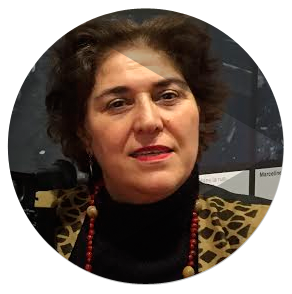
CASTRO LABOREIRO
Special Session
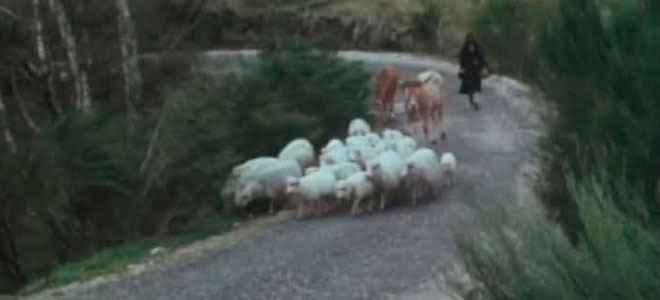
Ricardo Costa | Portugal, 1979, 85’
The traditions and reflections of modern society in one of the most remote areas of Portugal. Three episodes (1 - "Inverneiras", 2 - "Transumancias", 3 - "Brandas") that describe the vital life cycles of the populations, emphasizing the cyclical migrations from the valleys to the mountain, and vice versa. Immigration is an extreme consequence of that situation, contributing to transform the habits and community structures of the region. Exteriors in Castro Laboreiro and Peneda - Gerês National Park.
- Production: Diafilme, Radiotelevisão Portuguesa/RTP. Série: - O HOMEM MONTANHÊS
- Written by: Ricardo Costa
- Photography: Vítor Estevão
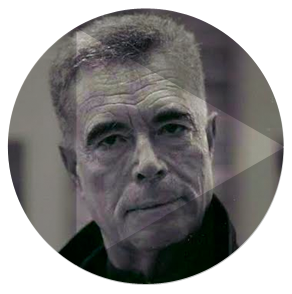
TODOS OS SONHOS DO MUNDO
Special Session
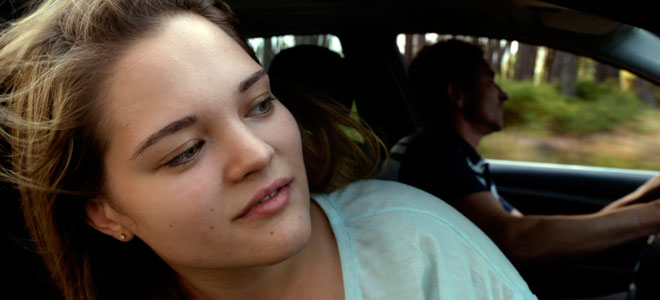
Laurence Ferreira Barbosa | Portugal, 2017, 104'
Paméla is a young Portuguese woman of the second generation, born in France. In the entanglement of her contradictions, her failures and absolute love for her family, she feels lost and seems unable to imagine how she could live her life ... Especially because she only likes to play piano and ice skating. It will, however, break its own path between France and Portugal.
- Written by: Laurence Ferreira Barbosa e Guillaume André
- Director of Photography: Renaud Personnaz
- Editing: Marie da Costa
- Sound: Francisco Veloso e Benjamin Laurent
- Music: Noiserv
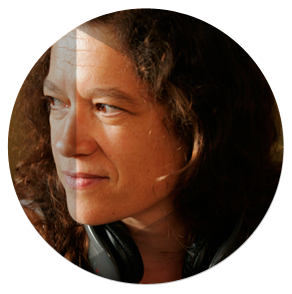
EN UNE POIGNÉE DE MAINS AMIES
Special Session
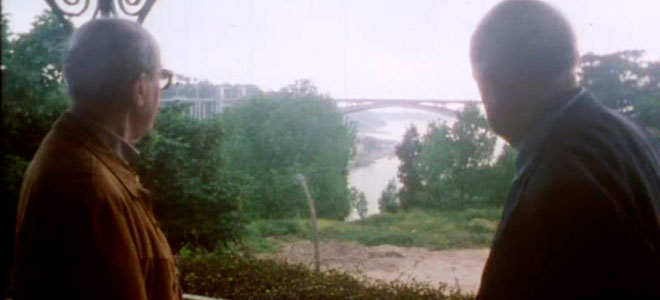
Jean Rouch, Manoel de Oliveira | Portugal, 1996, 30’
It’s a meeting between two directors who met late. It was made in the summer of 1996 to celebrate the hundred years of Portuguese cinema. Rouch and Oliveira film in four hands a route along the Douro River, downstream and return, in a film crossed by references to poetry and cinema.

AS CARTAS QUE NUNCA TE ESCREVI The Letters i Never Wrote to You
Frontal Shot
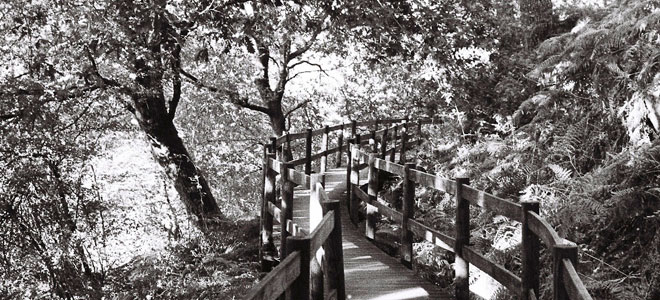
Tomás Barão da Cunha | Portugal, 2018, 14'
Melgaço, summer of 2017. Immigrants return home after another year of work. The streets are filled with life in Augusts’ hot summer. Agostinho, one of the many children of immigrants who remained, waits anxiously for his father, in what will be the last summer with an appointed return. After more than 30 years abroad, it is the longed-for return that leads us to this story. While the father is yet to arrive, Agostinho takes us to his childhood places, and in what way everything has forged him during the parental absence. Now a man, the time he dreamed of as a child has finally come, to have a father and to be ready to live a whole new world.
- Realização: Tomás Barão da Cunha
- Director of Photography: Francisco Pires
- Sound Director: Francisco Pires
- Participation: Agostinho Pires
- Coordenation: Pedro Sena Nunes
- Production: AO NORTE / Plano Frontal 2017
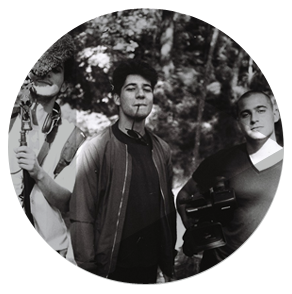
TINHA DE SER IT HAD TO BE
Frontal Shot
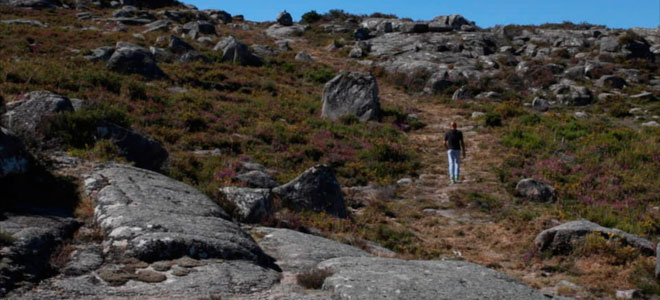
António Ventura, Bernardo Limas e João Valentim | Portugal, 2018, 18'
A story. A family. A return. About a man who saw many things. And got scared a lot. Thinking about who stayed. He left to return. There he left so much. It had to be then. Otherwise, he’d screw up. About a woman who stayed. The daughter. Growing up so fast. Three people. Three views. Three journeys.
- Realização: António Ventura, Bernardo Limas, João Valentim
- Director of Photography: João Valentim
- 2nd Camera Operator: Bernardo Limas
- Sound Director: António Ventura
- Editor: João Valentim
- Assistente de Edição: António Ventura
- Interviews: Bernardo Limas
- Soundtrack: António Ventura
- Translation: António Ventura
- Subtitling: João Valentim
- Participation: Luís Silva, Lídia Santos, Mafalda Silva
- Coordenation: Pedro Sena Nunes
- Production: AO NORTE / Plano Frontal 2017
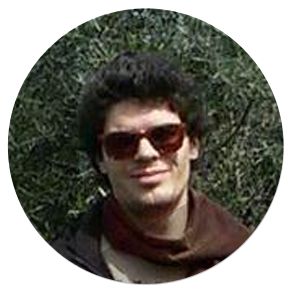
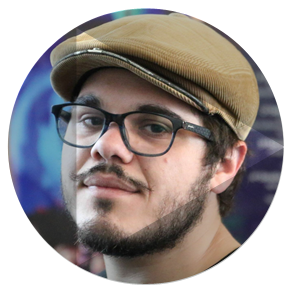
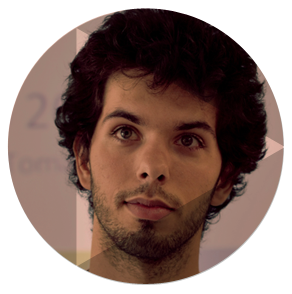
TERRA NATAL HOMELAND
Frontal Shot
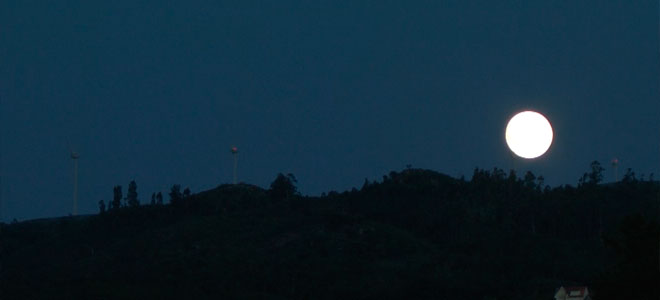
Leonor Coelho | Portugal, 2018, 14'
Go away, you cannot live here. But I was born here. There is nothing for you to do, everybody went away, there is no work. But what am I without the land of my childhood? Whomever you want to be and you can always come back on holidays.
- Realização: Leonor Coelho
- Director of Photography: Diogo Salgado
- Sound Director: Milene Coroado
- Editor: Diogo Salgado, Leonor Coelho
- Translation: Diogo Salgado
- Subtitling: Leonor Coelho
- Participation: Cláudio Costa e família
- Coordenation: Pedro Sena Nunes
- Production: AO NORTE / Plano Frontal 2017
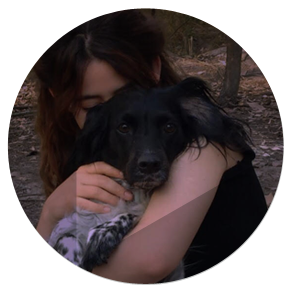
SILÊNCIO SILENCE
Guest Film
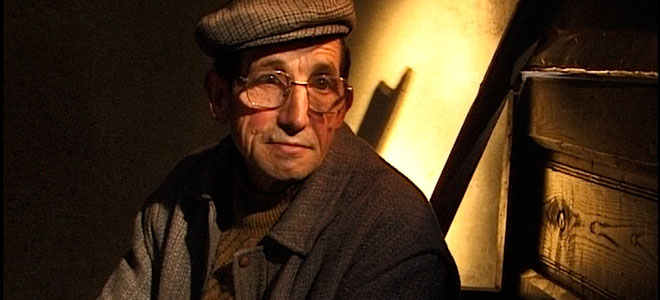
António Loja Neves e José Manuel Alves Pereira | Portugal, 2017, 67'
In the village of Cambedo da Raia, Chaves, leaning against Galicia, there was a bloody and tardy episode, still as a result of the Francoist coup on July 18, 1936.
The village, surrounded by the Civil Guard, Portuguese Army, PIDE (dictatorship police) and the GNR (Portuguese Police) was attacked with mortar rounds on December 21, 1946. Two guerrillas died, a child was injured and houses were destroyed because some Galicians had taken refuge there since the civil war.
Cambedo da Raia will lose, for over a year, 18 of its inhabitants, preventively arrested in Porto until the trial. For a long time the episode remained banned, with the Iberian fascism imposing its version. The inhabitants of Cambedo have dragged for decades the reputation of being malefactors or of hiding criminals, a label glued to them by the authorities.
In December 1996, in a civic action carried out by a group of Galician intellectuals, the memory of border solidarity was rescued and with it the local self-esteem. A plaque was then affixed in the center of the village: "In memory of your suffering (1946-1996)".
The film gathers the testimonies of people from the village, given for the first time after 50 years of enforced silence without a mention of this tragic episode.
- Director of Photography: Rui Poças
- Production: A Quimera do Ouro
